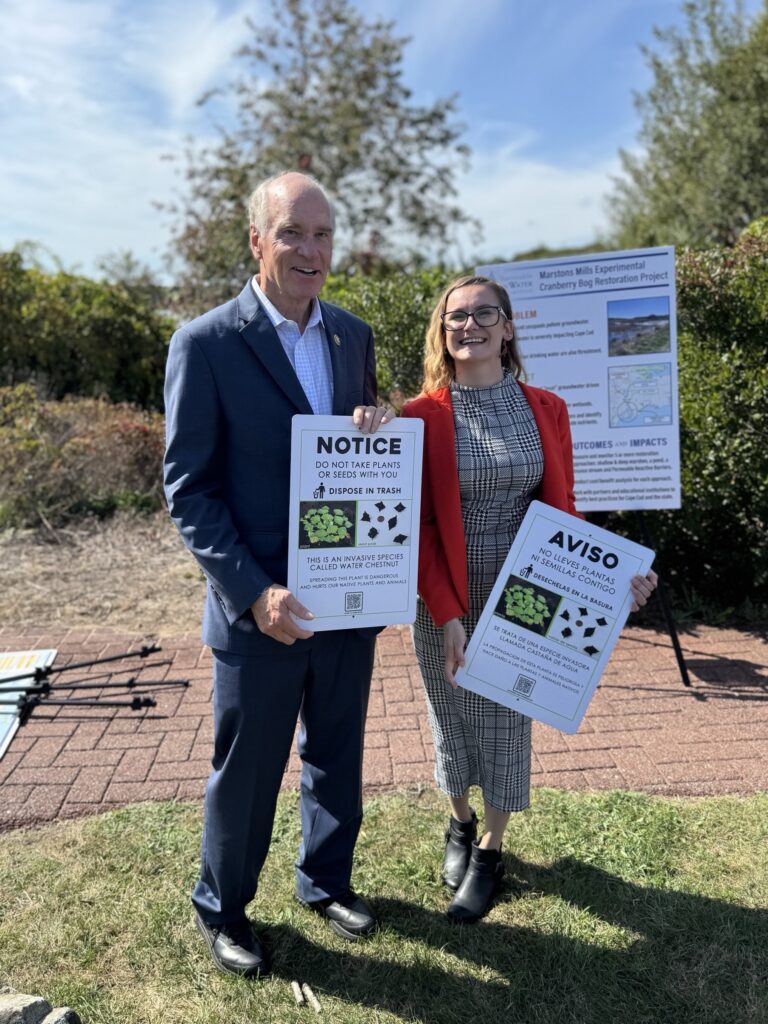The Southeast New England Program (SNEP) awarded NEIWPCC a $100,000 grant for habitat restoration efforts in two interstate watersheds. The funding supports continued work on the Community-Based Habitat Restoration: Water Chestnut Management in the Blackstone and Ten Mile Watersheds project, which began in spring 2023. Both the Blackstone and Ten Mile watersheds are located in southeastern Massachusetts with sections in Rhode Island.

The project will control water chestnut populations in targeted areas, while expanding the project scope to support new community organizations and municipalities in the process. Water chestnut (Trapa natans) is an aquatic invasive plant that overtakes slow-moving waterways, lakes and ponds and negatively impacts freshwater ecosystems. Water chestnuts form dense floating mats that deplete dissolved oxygen levels, shade out native plants, alter fish habitat and impede recreational activities such as swimming, fishing and boating. When left unmanaged, water chestnuts can grow exponentially, and seed beds can remain viable for up to twelve years – making a sustained, multi-year management effort a necessity.
NEIWPCC will tackle the invasive plant by supporting volunteer hand-pulling to engage community members and increase public awareness of the impacts of water chestnut. This work builds off the 19 hand-pulling events NEIWPCC hosted in Massachusetts and Rhode Island in 2024, which attracted 332 volunteers for a total of 957 volunteer hours. The project will also provide technical assistance and water chestnut management resources to municipalities and watershed organizations.
NEIWPCC Program Manager Maryann Dugan said, “This project is more than just removing an invasive species and restoring aquatic habitats—it’s also about bringing people back to their natural resources and helping them reclaim the beauty of their surroundings, especially within environmental justice areas.”
NEIWPCC’s project is one of 12 high-priority SNEP-funded projects throughout Southeast New England. The grants were awarded under the 2024 SNEP Watershed Implementation Grants (SWIG) program, a partnership between Restore America’s Estuaries, a national non-profit organization, and EPA Region 1.